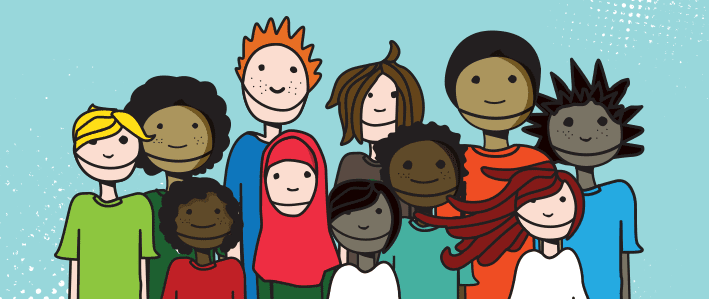Children thrive when we all understand how to play our part in keeping them safe and well.
There are many things that we can do in every day life – to make a difference in the life of a child – in our jobs, in our families, in our neighbourhoods, in our clubs or organisations, and in our social groups.
Use the headings on the left-hand side to explore ways that we can all play our part in protecting children.

Download the Play Your Part factsheet for aunts/uncles.
Be a positive role model for your siblings to learn from. Be aware of your behaviour and take responsibility for it – what you say, how you say it and the way you act. Children and young people learn from the people they spend time with, so make your influence positive!
Be a good listener, support and encourage your brother or sister.
Enjoy spending time with your brother or sister and give yourself time apart from your family too.
If you are worried that your brother/ sister is unhappy, scared or unsafe encourage them to speak to an adult that they trust. This person could be a parent, teacher or counsellor. You can offer to go with them for extra support.
If you are old enough, offer to spend time with your brother or sister. Take them to the park, play outside with them, or do some other activities to make your relationship even stronger.
Share positive experiences with your siblings. Let them know you care. It can make all the difference.
Download the Play Your Part factsheet for brothers/sisters.
Anybody who may have children in their care at some time is classified as a Carer – for example: child care workers, early childhood professionals, foster carers, friends, healthcare professionals etc.
Download the Play Your Part factsheet for carers.
Download the Play Your Part factsheet for community workers.
Download the Play Your Part factsheet for grandparents.
Download the Play Your Part factsheet for health practitioners.
Download the Play Your Part factsheet for media.
![]()
Download the Play Your Part factsheet for police.
![]()
Download the Play Your Part factsheet for religious communities.
Download the Play Your Part factsheet for shops.
Download the Sports & Recreation Clubs Tip Sheet.
As children spend much of their time at school, classrooms are safe, structured environments that can provide child abuse and violence prevention education.
NAPCAN is involved in the implementation of child abuse prevention programs in primary and secondary schools around Australia, through the Love Bites program. Informed by this experience and also best practice standards for respectful relationships education; some of the key learning from this work includes:
Download the Play Your Part factsheet for teachers.
Download the Play Your Part factsheet for young people.